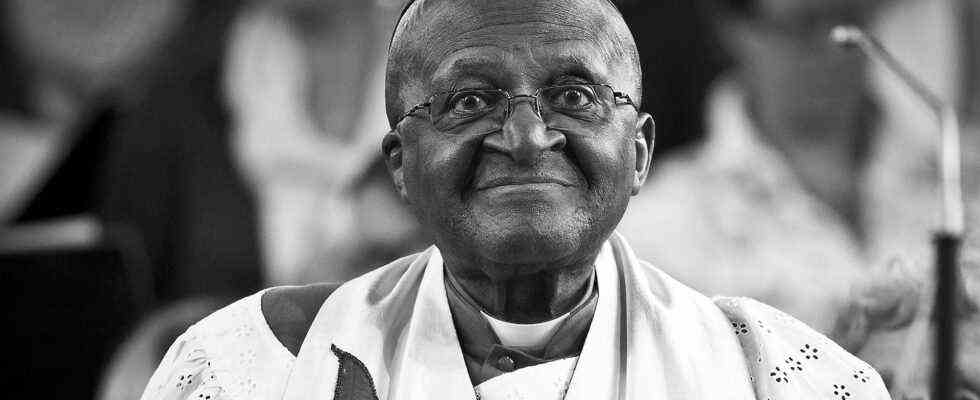As of: December 26th, 2021 9:14 am
South African Archbishop Emeritus Desmond Tutu has died at the age of 90. Together with Nelson Mandela he had fought for an end to apartheid and was awarded the Nobel Peace Prize in 1984 for this.
South African Archbishop Desmond Tutu died at the age of 90. This was announced by President Cyril Ramaphosa. He expresses “on behalf of all South Africans his deep sorrow over death” tutus.
Nobel Peace Prize laureate Desmond Tutu dies at the age of 90
tagesschau24 9:00 a.m., December 26th, 2021
Tutu was the first black Anglican Bishop of Johannesburg and was named Archbishop of the Archdiocese of Cape Town on September 7, 1986. Together with Nelson Mandela, he campaigned for an end to apartheid in South Africa and took the leading role in this struggle after Mandela was imprisoned in 1964. Tutu was awarded the Nobel Peace Prize in 1984 for his commitment.
Desmond Tutu at the presentation of the Nobel Peace Prize in Oslo in 1984.
Image: picture-alliance / dpa
From teaching to church
Tutu was born in Klerksdorp near Johannesburg in 1931. At first he followed in his father’s footsteps professionally and became a teacher. In 1955 he married Leah Nomalizo Shenxane. The couple had four children in total.
But with the Bantu Education Act of the then South African government, by which black pupils and students are worse off in their education, Tutu decided to quit his teaching post. He then embarked on a theological career, initially serving as a deacon in the early 1960s, and was ordained a priest in 1961.
In 1975 Tutu became the first black African to become the Anglican Dean of St. Mary’s Cathedral in Johannesburg. Around ten years later he was named the city’s first black Anglican bishop and on September 7, 1986, he was named Archbishop of the Archdiocese of Cape Town. He held this office until autumn 1996.
Fighters at Mandela’s side
Tutu began to express himself critical of the situation of the black population in the country early on – over the years he would become one of the most determined and well-known fighters against the apartheid regime alongside the later President Nelson Mandela. After Mandela was sentenced to life imprisonment and imprisoned in 1964, Tutu took the lead in the fight against apartheid. For this he was awarded the Nobel Peace Prize in 1984. In addition, Tutu was honored for his work with the Martin Luther King Prize, the German Federal Cross of Merit and around three dozen honorary doctorates.
After the news of Tutu’s death, President Ramaphosa also spoke of “another chapter of mourning in our nation’s departure from a generation of outstanding South Africans who left us a liberated South Africa”. Tutu was “a man of extraordinary intelligence, of integrity and invincible against the forces of apartheid” and stood up “for the oppressed around the world”.
Reconciliation instead of retribution
After the end of the apartheid regime in 1994, Tutu was consistently committed to peace and reconciliation in South Africa. At Mandela’s request, in 1996 he took over the chairmanship of the Truth and Reconciliation Commission, which dealt with the crimes of the apartheid era. He pursued the motto “forgive, but not forgotten”. Tutu also shaped the image of South Africa as a “rainbow nation”, in which it should be made possible for people of all skin colors and ethnicities to live together peacefully.
Tutu campaigned for human rights and against discrimination well into old age. At the same time, he became a critical voice denouncing errors in the policies of the African National Congress and former President Jacob Zuma. From 2010, Tutu began to gradually withdraw from the public. Most recently, he had publicly advertised the vaccinations against the coronavirus after he had himself vaccinated in May of this year.

